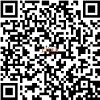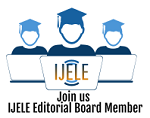(2) Yakubu Peter Abuh
*corresponding author
AbstractThis study investigated how to foster students' academic performance using cognitive conflict instructional strategy and conceptual change pedagogy on Senior Secondary (SS2) two in thermal physics in Kogi East Education Zone of Kogi State. The study adopted a quasi-experimental design, specifically, pretest-posttest non-equivalent-control group type. The study population was all the 7380 senior school two physics students in 153 co-educational secondary schools during the 2018/2019 academic session. The sample consisted of 294 SS two physics students (187 males and 107 females) drawn from six secondary schools using a multi-stage sampling technique. Thermal Physics Performance Test (TPPT) with reliability coefficients of 0.79 was used for data collection. Data collected were analyzed using mean, standard deviation, and bar graphs to answer the eight research questions and Analysis of Covariance (ANCOVA) to test the null hypotheses at 0.05 level of confidence. The study's findings revealed that there was a significant difference in mean academic performance among students taught thermal physics using cognitive conflict instructional strategy, conceptual change pedagogy, and traditional instructional strategy. The result equally revealed that cognitive conflict instructional strategy enhances students' academic performance more than conceptual change pedagogy. In addition, male and female students taught using cognitive conflict instructional strategy differ significantly in academic performance scores F (1, 99) = 24.409; p = 0.000 < 0.05. Likewise the male and female students taught using conceptual change pedagogy differ significantly in academic performance scores at F(1,95) = 33.974, p = 0.000 < 0.05. Furthermore the finding revealed that there is significant interaction effect of strategy and gender on students’ mean academic performance scores F (2, 293) = 6.307; p = 0.002 < 0.05. It was also found that both cognitive conflict instructional strategy and conceptual change pedagogy foster students' academic performance in Physics more than traditional instructional strategy. Based on the findings, it was recommended that Physics teachers be encouraged to use both cognitive conflict instructional strategy and conceptual change pedagogy to teach Physics in secondary schools to enhance students' academic performance.
KeywordsCognitive conflict; Instructional strategy; Conceptual change pedagogy; Performance in physics; Interaction effect; Gender
|
DOIhttps://doi.org/10.31763/ijele.v2i1.118 |
Article metrics10.31763/ijele.v2i1.118 Abstract views : 2406 | PDF views : 1353 |
Cite |
Full Text Download Download
|
References
[1] Y. Goffied. Common science misconceptions, 2011, Retrieved from: www.newyorkscienceteacher. com/sci/rages/miscon/subject-index.php.
[2] A. A. Nwosu, Gender and acquisition of science process skills among secondary school students: implications for science teaching. 42nd Annual Conference proceedings of STAN. Woman in science, technology and mathematics education in Nigeria;2012, pp. 206-209, available at: Google Scholar.
[3] R. Driver, E. Guesne and A. Tlbergheien. Children’s ideas in science. Milton Keynes: Open University Press, 2009, available at: Books Google.
[4] P. Karen, M. David and J. Kate. Children's misconceptions in primary science: A survey of teachers' views. Research in Science and Technological Education. 19, 2001, doi: 10.1080/02635140120046240.
[5] E. A. C. Okeke . Female participation in science, technology and mathematics (STM) education in Nigeria and national development. Journal of Social Sciences, 2015, vol. 15,no. 2, pp.121-126. Retrieved from www.krepublishers.com, doi: 10.1080/09718923.2007.11892572.
[6] S. Y. Erinosho. How do students perceive the difficulty of physics in schools. An exploratory study in Nigeria. International Journal for Cross Disciplinary Subjects in Education, 2016, vol. 3, no.13, pp.151 – 156, available at: Google Scholar.
[7] West Africa Examination Council (WAEC). Chief examiner’s report. Lagos: WAEC, 2008-2018, available at: Google Scholar.
[8] S. N. Ochchuku. New formulas for estimating the temperature of mixture of hot systems. International Journal of Theoretical and Mathematical Physics, 2012, 2(5): 96-100, doi: 10.5923/j.ijtmp.20120205.01
[9] B. C.Madu. Effect of a constructivist based instructional model on students’ conceptual change and retention in physics. Unpublished thesis, university of Nigeria, Nsukka, 2008, available at: Google Scholar.
[10] E. E. Achor. Teaching waves and radioactivity using innovative approaches. In R.M.O. Samba and J.O. Eriba (Eds.) Innovative approaches to teaching difficult concepts (128 – 148). Makurdi: Destiny Ventures, 2013, available at: Google Scholar.
[11] E. Orji, (2014). Effects of cognitive conflict based instruction on students’ achievement in senior secondary schools. SAGE Journal of Sciences, 2014, vol.12, no.2, pp.119 – 202, doi: 10.1177/2158244015594662.
[12] S. A. A.Musa. Effect of motivation- enhanced activity-based learning of difficult Physics concepts on senior secondary students’ achievement and academic engagement, Kogi State. Unpublished Thesis, Benue State University, Makurdi, 2017, available at: Google Scholar.
[13] M. Ryder. Wikipedia: the free encyclopedia. Wiki/constructvism learning theory, 2010, available at: Wikipedia.
[14] P. C. Agomouh. Effect constructivist instruction model (PEDDA) and the learning cycle (TLC) on students’ conceptual change and retention. An Unpublished Ph.D. Thesis, University of Nigeria Nsukka, 2010, available at: Google Scholar.
[15] G. Lee, J. Kwon, S. Park, J. Kim, M. Kwon and H. Park. The effects of cognitive conflict on students’ conceptual change in physics, 2013. Retrieved from www.eric.ed.gov/er/cwebportal.
[16] R. M. O. Samba, E. E. Achor and J. A. Ogbeba. Teachers and utilization of innovative strategies in secondary school science in Benue state. Educational Journal, 2010, vol.1no.2, pp.32 – 38. Available at: Google Scholar.
[17] E. A. C. Okeke. Attracting women into science based occupation, problems and prospects. Science and Policy, 2014, vol.3, no.5, pp.11 – 18, available at: Google Scholar.
[18] West Africa Examination Council (WAEC). Nigeria statistic of entries and results. Lagos: WAEC, 2014, available at: Education.gov.ng
[19] Ministry of Education (MOE). Planning, research and statistics department of Kogi State ministry of education, Lokoja. Official record of schools and records directorate, 2019, available at: moest.kg.gov.ng.
[20] M. Limon. On the cognitive conflicts as an instructional strategy for conceptual change: A critical appraisal. Learning and instruction, 2011, vol.11, pp.357-380, doi: 10.1016/S0959-4752(00)00037-2.
[21] R. T. Stofflect and T. Stoddent. The ability to understand and use conceptual change pedagogy as a function of prior content learning experience. Journal of Research in Science Teaching, 1994, vol.31, no.1, pp.31 – 51, doi: 10.1002/tea.3660310105.
[22] Federal Ministry of Education(FME). National policy on education (4th ed.). Yaba – Lagos: NERDC Press, 2014, available online.
[23] M. Baser. Effect of conceptual change oriented instruction on students’ understanding of heat and temperature concepts. Journal of Maltese Education Research, Vol:4 No.1 2006, 64-79, available at: Eric.ed.gov.
[24] G. Lee and T. Byun. An explanation for the difficulty of leading conceptual change using a counter intuitive demonstration and responses. Research in Science Education, 2012, 42(5), 943 – 965, doi: 10.1007/s11165-011-9234.
[25] Adebisi, T.A., & Ajayi, P.O . (2013). Correlation of students’ attitude and gender differences on understanding of concepts in physics practical in SS two in Ogun state, Nigeria. Advances in Social Science Research Journal (ASSRJ). 2(4), 215 – 219, doi: 10.14738/assrj.24.1008 .
[26] M. T. H. Chi. Conceptual change, 2014. Retrieved from http://project. co.uga.edu/epltt/index.php
[27] A. P. Abiodun and O. O. Jonathan. Effects of constructivist instructional approach on teaching practical skills to mechanically related trade students in Western Nigeria technical colleges. International NGO Journal, 2014, vol.5 no.3,pp. 59 – 64. http://www.academicjournal.org/INGOJ.
[28] L. J. Fairbanks. Misconceptions in middle school life science and strategies teachers can use to change them. Graduate Research Papers, 2011, available at: Google Scholar.
[29] C. A. Ukozor. Effect of constructivist teaching strategy on senior secondary schools’ achievement in physics. Journal of Science, Technology, Mathematics and Entrepreneurial Education (JSTMEE), 2011, vol. 1no.1,pp.176 – 184, available at: Google Scholar.
[30] C. S. Ugwuanyi. Assessment of senior secondary school students conceptual understanding of force and motion. Unpublished M.Ed. Project, University of Nigeria, Nsukka, 2012. Available at: Google Scholar.
[31] E. Tashidire. Effect of conceptual change oriented instruction on students’ conceptual understanding and decreasing their misconceptions in DC electric circuits. Creative Education, 2013, vol.4, pp.273 – 282. doi:10.4236/ce.2013.44041.
[32] B. C. Madu and E. Orji. Effects of cognitive conflict instructional strategy on students’ conceptual change in temperature and heat. Science Education International Journal, 2016, vol.25no.4,pp. 417 – 437), doi: 10.1177/2158244015594662.
Refbacks
- There are currently no refbacks.
Copyright (c) 2020 Emmanuel E. Achor, Yakubu Peter Abuh

This work is licensed under a Creative Commons Attribution-ShareAlike 4.0 International License.

International Journal of Education and Learning
ISSN 2684-9240
Published by Association for Scientific Computing Electronics and Engineering (ASCEE)
W : http://pubs2.ascee.org/index.php/ijele
E : zalik@ascee.org

This work is licensed under a Creative Commons Attribution-ShareAlike 4.0 International License.




















